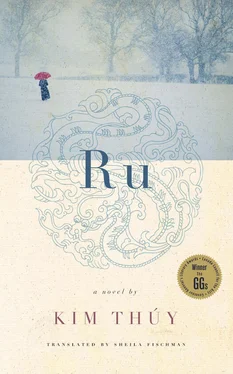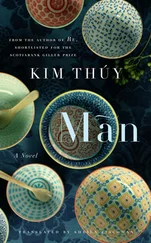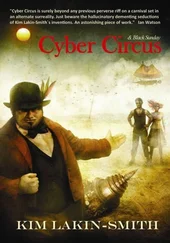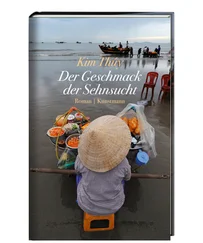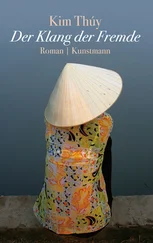Over the past ten years, however, my mother has discovered the joys of dancing. She let her friends persuade her that the tango, the cha-cha and the paso doble could replace physical exercise, that there was nothing sensual or seductive or intoxicating about them. Yet ever since she’s been going to her weekly dancing class, she says now and then that she wishes she’d segued from her days on the election campaign to the parties where her brother, my father and dozens of other young candidates amused themselves around a table. Also, today she seeks my father’s hand at a movie and his kiss on her cheek when posing for photos.
My mother started to live, to let herself be carried away, to reinvent herself at the age of fifty-five.
As for my father, he didn’t have to reinvent himself. He is someone who lives in the moment, with no affection for the past. He savours every instant of the present as if it were still the best and only time, with no comparisons, no measurements. That’s why he always inspired the greatest, most wonderful happiness, whether holding a mop on the steps of a hotel or sitting in a limousine en route to a strategic meeting with his minister.
From my father I inherited the permanent feeling of satisfaction. Where did he find it, though? Was it because he was the tenth child? Or because of the long wait for his kidnapped father’s release? Before the French left Vietnam, before the Americans arrived, the Vietnamese countryside was terrorized by different factions of thugs introduced there by the French authorities to divide the country. It was common practice to sell wealthy families a nail to pay the ransom of someone who’d been kidnapped. If the nail wasn’t bought, it was hammered into an earlobe — or elsewhere — on the kidnap victim. My grandfather’s nail was bought by his family. When he came home, he sent his children to urban centres to live with cousins, thereby ensuring their safety and their access to education. Very early, my father learned how to live far away from his parents, to leave places, to love the present tense, to let go of any attachment to the past.
That is why he’s never been curious to know his real date of birth. The official date recorded on his birth certificate at the city hall corresponds to a day with no bombardment, no exploding mines, no hostages taken. Parents may have thought that their children’s existence began on the first day that life went back to normal, not at the moment of their first breath.
Similarly, he has never felt the need to see Vietnam again after his departure. Today, people from his birthplace visit him on behalf of property developers, suggesting he demand the deed to his father’s house. They say that ten families live there now. The last time we saw it, it was being used as a barracks by Communist soldiers recycled as firemen. Those soldiers started their families in the big house. Do they know that they live in a building put up by a French engineer, a graduate of the prestigious National School of Bridges and Roads? Do they know that the house is a thank-you from my great-uncle to my grandfather, his older brother, who sent him to France for his education? Do they know that ten children were brought up there but now live in ten different cities because they were ejected from their family circle? No, they know nothing. They can’t know: they were born after the French withdrawal and before that part of the history of Vietnam could be taught to them. They’d probably never seen an American face up close, without camouflage, until the first tourists came to their town some years ago. They only know that if my father takes back the house and sells it to a developer, they will receive a small fortune, a reward for confining my paternal grandparents to the tiniest room in their own house during the final months of their lives.
Some nights the firefighter-soldiers, drunk and lost, would fire through the curtains to silence my grandfather. But he’d stopped speaking after his stroke, which had happened before I was even born. I never heard his voice.
My paternal grandfather I never saw in any position but horizontal, stretched out on an enormous ebony daybed that stood on carved feet. He was always dressed in immaculately white pyjamas without a crease. My father’s Sister Five, who had turned her back on marriage to look after her parents, kept watch obsessively over my grandfather’s cleanliness. She would not tolerate the slightest spot or any sign of inattention. At mealtimes, a servant would sit behind him to keep his back straight, while my aunt fed him rice, a mouthful at a time. His favourite meal was rice with roast pork. The slices of pork were cut so finely they seemed to be minced. But they weren’t to be chopped, only cut into small pieces two millimetres square. She mixed them with steaming rice served in a blue and white bowl with a silver ring around its rim to prevent chipping. If the bowls were held up to the sun, one could see translucent areas in the embossed parts. Their quality was confirmed by the glimmers that exposed the shades of blue in the patterns. The bowls nestled gently in my aunt’s hands at every meal, every day, for many years. She would hold one, delicate and warm, in her fingers and add a few drops of soy sauce and a small piece of Bretel butter that was imported from France in a red tin with gold lettering. I was also entitled to this rice now and then when we visited.
Today, my father prepares this dish for my sons when he’s given some Bretel butter by friends coming home from France. My brothers make affectionate fun of my father because he uses the most outrageous superlatives to describe the tinned butter. I agree with him, though. I love the scent of that butter because it reminds me of my paternal grandfather, the one who died with the soldier-firemen.
I also like to use those blue bowls with the silver rims to serve ice cream to my sons. They are the only objects that I wanted from my aunt, the one who was driven out of her house after the death of my paternal grandparents. She became a Buddhist, living in a hut behind a plantation of palm trees, stripped of all material goods but a wooden bed without a mattress, a sandalwood fan and her father’s four blue bowls. She hesitated briefly before complying with my request: the bowls symbolized her last attachment to any earthly concerns. She died shortly after my visit to her hut, surrounded by monks from a nearby temple.
I went back to Vietnam to work for three years, but I never visited my father’s birthplace some two hundred and fifty kilometres from Saigon. When I was a child, I would vomit the whole way whenever I made that twelve-hour journey, even though my mother put pillows on the floor of the car to keep me still. The roads were riddled with deep fissures. Communist rebels planted mines by night and pro-American soldiers cleared them away by day. Still, sometimes a mine exploded. Then we had to wait hours for the soldiers to fill in the holes and gather up the human remains. One day a woman was torn to pieces, surrounded by yellow squash blossoms, scattered, fragmented. She must have been on her way to the market to sell her vegetables. Maybe they also found the body of her baby by the roadside. Or not. Maybe her husband had died in the jungle. Maybe she was the woman who had lost her lover outside the house of my maternal grandfather, the prefect.
One day when we were deep inside the darkness of a cube van on our way to pick strawberries or beans, my mother told me about a woman, a day labourer, who would wait for her employer across from my maternal grandfather’s place every morning. And every morning my grandfather’s gardener brought her a portion of sticky rice wrapped in a banana leaf. Every morning, standing in the truck that was taking her to the rubber trees, she watched the gardener move away in the middle of the bougainvillea garden. One morning she didn’t see him cross the dirt road to bring her breakfast. Then another morning … and another. One night she gave my mother a sheet of paper darkened with question marks, nothing else. My mother never saw her again in the truck jam-packed with workers. That young girl never went back to the plantations or to the bougainvillea garden. She disappeared not knowing that the gardener had asked his parents in vain for permission to marry her. No one told her that my grandfather had accepted the request of the gardener’s parents to send him to another town. No one told her that the gardener, her own love, had been forced to go away, unable to leave her a letter because she was illiterate, because she was a young woman travelling in the company of men, because her skin had been burned too dark by the sun.
Читать дальше
